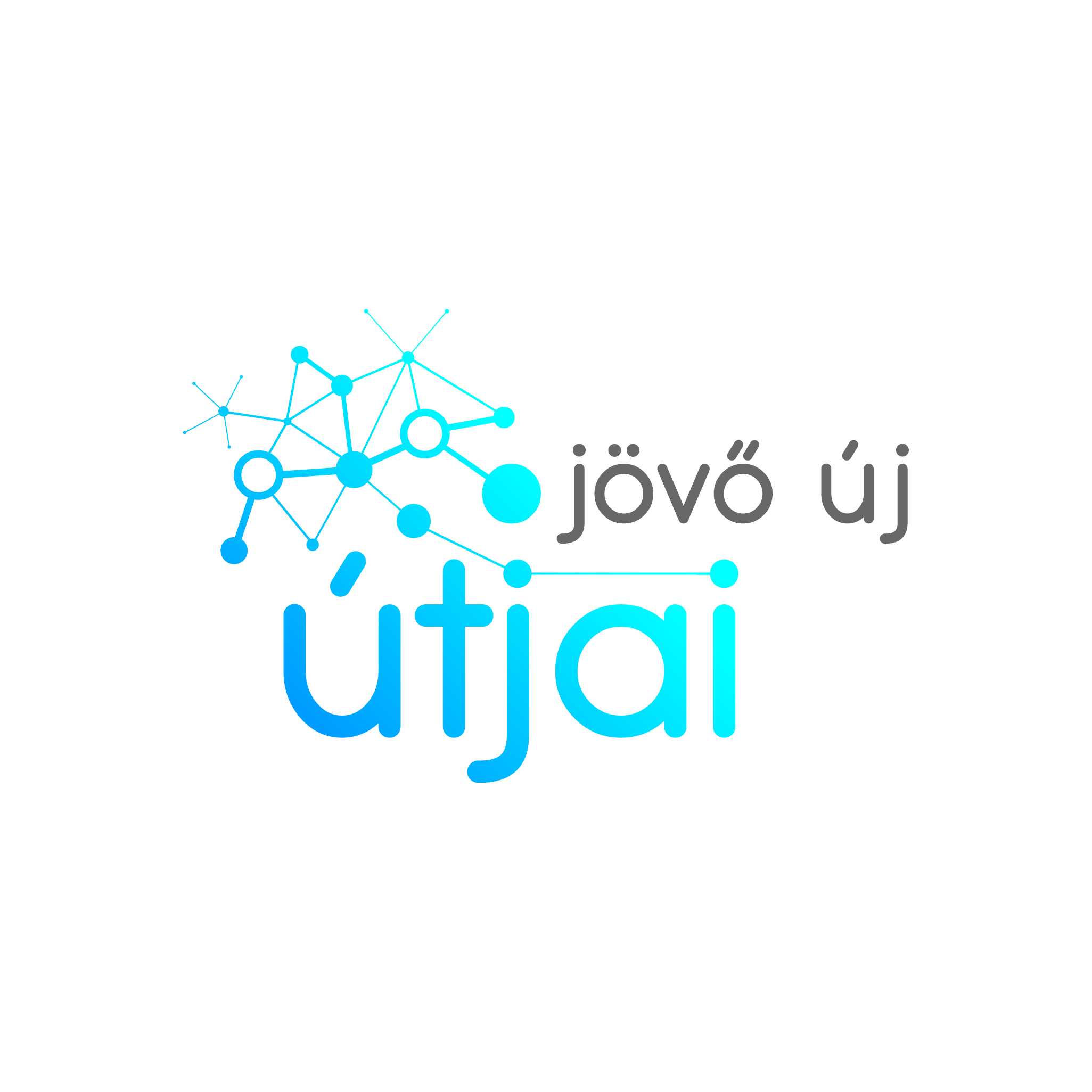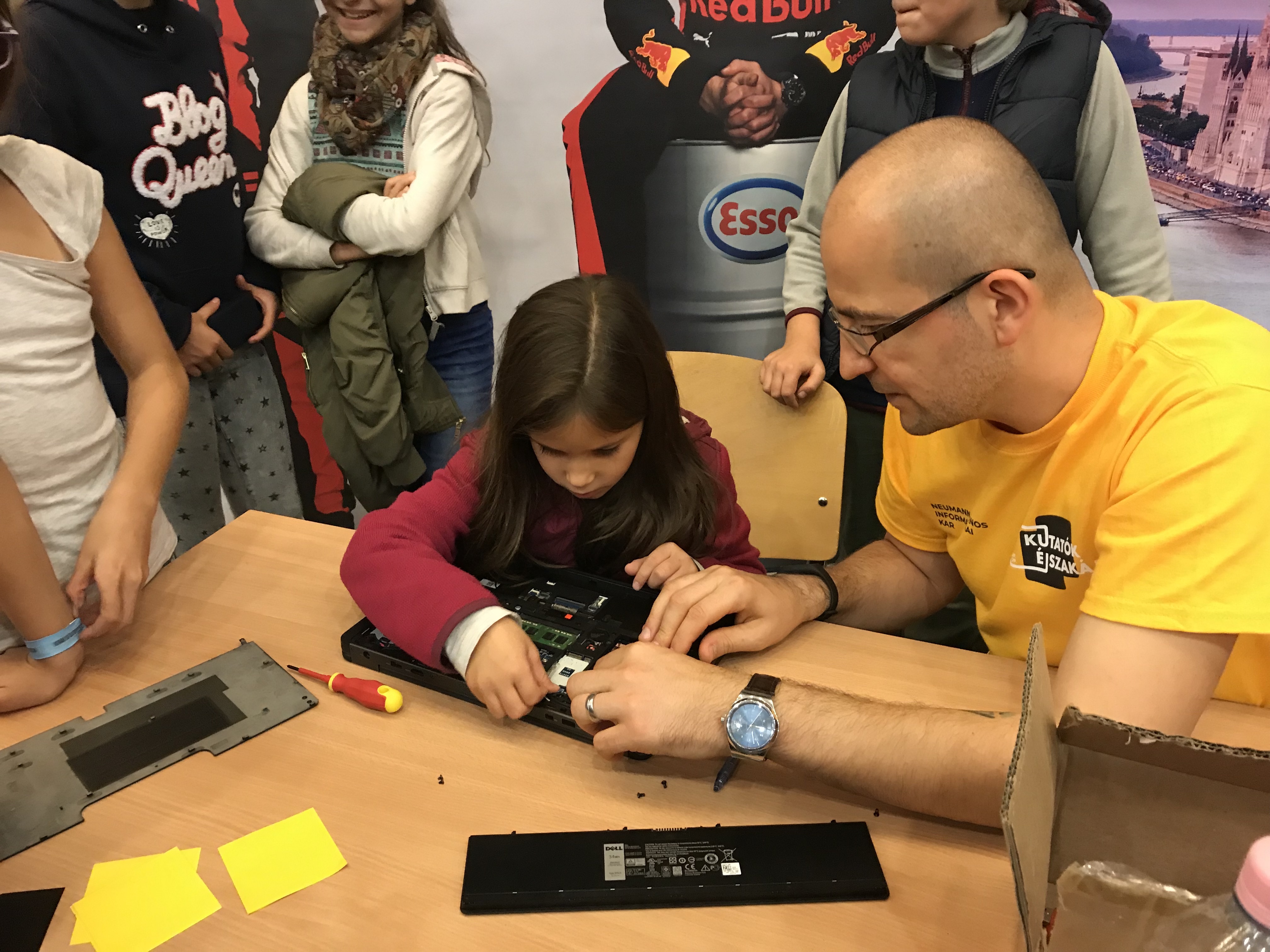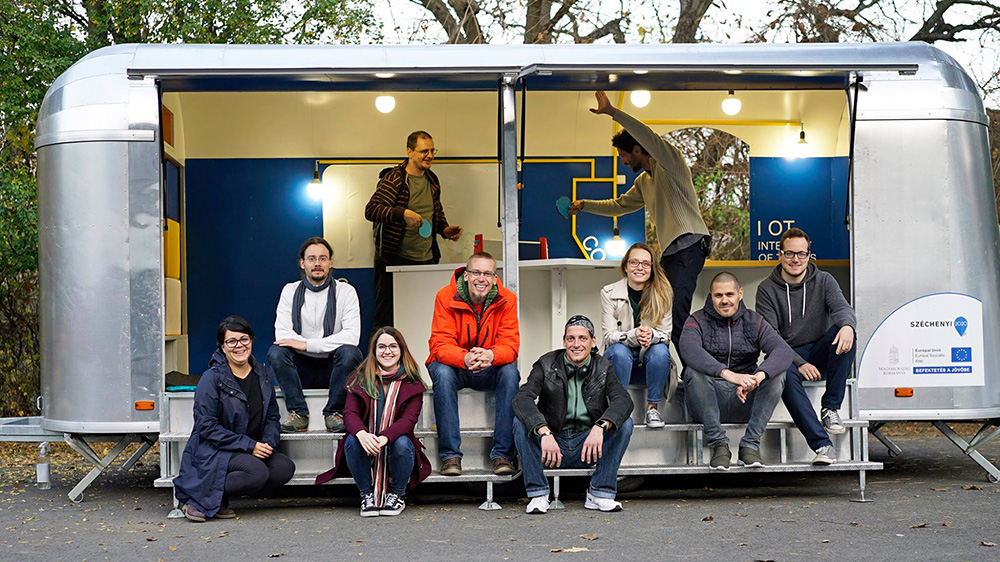Hungary
Apr
25
2023
0
By secretariat
Dec
06
2022
Update: First taskforce meeting scheduled for April 18, 2023
By admin
Country:
Hungary
Abstract:
The first Taskforce Meeting for the taskforce 'Hungarian STEM platform: Next Steps' has been scheduled to take place in Budapest, Hungary on April 18, 2023.
The taskforce will bring together regional best practices and partners from Poland, Slovakia, Czechia and Bulgaria as well as other EU Member States. More info about the programme will follow soon.
Nov
04
2022
First taskforce scheduled by Hungarian STEM platform
By admin
Country:
Hungary
Abstract:
Four years after its launch in 2018, the Hungarian STEM platform will host a conference to present the progress of the platform, discuss future opportunities and international best practices and strengthen the partnerships with neighbouring countries in the area of STEM promotion. For more information, see the event page via the link above.
Nov
04
2022
Hungarian STEM Platform: Next Steps
By admin
Feb
11
2021
Future Ways in Career Orientation and the World of Autonomous Vehicles
By OBUDA
Short summary:
Hungary in recent years has been increasingly confronted with the undesirable phenomenon of young people not being able to study mathematics, science, technical or informatics training, fields in which exist big labour market shortages. The growing demand for professionals is not followed by the student skills. The main objective of the 'Future Ways in Career Orientation and the World of Autonomous Vehicles'-programme (Future Ways) is to increase the number of students that pursue this specialisation in higher education and to promote the mathematics and informatics fields in general.
Description and objectives:
The objective of the Future Ways-programme is to improve the level of education of young people and to facilitate the transition to higher education in these subject areas. This objective was set by the government, in line with related government strategies for STEM. To support the implementation of the objective, the consortium partners implement a wide range of activites, spanning multiple education levels. These include:
- Experience-focused workshops focusing on innovation
- Innovative and interactive roadshows that arouse students’ interest in the profession
- Company visits at leading organizations
- Summer camps with career orientation and skills development modules
- Skills development workshops for the cumulatively disadvantaged
- Organization of open days at the universities
- Training of trainers for staff members
- The preparation and methodological guidelines of curriculum integration
The members of the consortium (higher education instituions) took part directly in the activities. For example, iin the design of the high school quiz, where playful yet professional and thought-provoking questions were formulated designed to arouse interest in the topic and technical training. The consortium partners also participated directly in the compilation and implementation of the summer camp program. In the camp, they provided lectures on technical care / engineering t raining, the transport of the future, self-driving and electric vehicles and their effects. The lectures were designed to be understandable for the target age-group. Furthermore, during the one-week camp, students were continuously mentored and participated in teams looking for innovative solutions to future mobility and urban problems. In particular, the interactive presentations and the direct conversation with the students were well-received. Mentors encouraged students by passing on their personal experiences. Students were able to hear first-hand about the courses, new research findings, and opportunities.
Country:
Link to programme website:
Logo or photo:

Impact:
The impact of the programme was measured primarily by the number of students that particpated (see above). In addition,
Reach:
The consortion organised around 40 events and a staff training have organized almost 40 events and a staff training (50 participants). Around 100 schools were involved during the programs, and more than 1200 students participated at the roadshows and events.
Budget and funding model:
The funding was originating from the Hungarian Human Resource Development Operative Programme, aiming at the implementation of skills development and communication programs to promote access to higher education and promotion of mathematics, science, technical or informatics subjects in higher education.
A consortium of universities and civil organisations were invited to submit project proposals, where some outcomes and KPIs were defined, such as presentation of the teaching portfolio, realisation of roadshows, organisation of experience-oriented professional days and open days at the university, promotion of possible career opportunities, organization of summer schools, trainings for staff members.
Year start:
2018
Status:
Year end:
2020
Feb
11
2021
Informatics, Engineering, Agriculture and Science Training Scholarship program
By OBUDA
Short summary:
The aim of the Informatics, Engineering, Agriculture and Science Training Scholarship Programme is to support students studying in the fields of agriculture, informatics, technology and science training to increase uptake of these fields and reduce dropouts in order to fill the labour market shortage with highly needed professionals. The programme will be launched in 2022.
Description and objectives:
The Informatics, Engineering, Agriculture and Science Training Scholarship Programme (hereinafter: the Scholarship Program) aims to contribute to a significant reduction in student drop-out rates by obtaining a higher education degree as soon as possible in the relevant fields of study. In the case of all fields of study, but especially in the case of science courses, another objective is to increase the number of students, who participate in master's programme, and to strengthen the supply of teachers and researchers. The programme aims to deliver both scholarships as well as 'catch-up programmes' to students in need. The objectives of the programme are aligned with broader (governmental) policies, in particular:
- Gear shifting in higher education medium-term policy strategy 2016: increase the number of students and graduates in mathematics, science, technology and informatics, significantly reduce drop-out rates, support student’s success in the distribution methodology of study-based scholarships and in the field of the training, increase the student’s performance, knowledge and thus the quality of training.
- Digital Education Strategy of Hungary (Action 10): In order to meet the labour demands of government programs for the development of the digital economy and the digital industry, the Hungarian Government is launching programs that go beyond traditional forms of training and reduce labour shortages that threaten the development of IT businesses and digital economy in a short term as well. Action plan point 10/11. : Additional funding must be provided for scholarships from 2018, to progressively increase the number of students in IT programmes.
- 1840/2017. (XI. 10.) Government Decree point 4 / c.: the Government requests the Minister of National Economy, the Minister of Human Resources and the Minister of Agriculture to develop a scholarship programme for students, who studying or applying for agricultural higher education and to make a proposal to the Government about the conditions for the introduction of the scholarship programme and the required amount of resources.
- Increasing the number of female students in IT training, in accordance with the EU's Digital Economy and Society Index (DESI index) should be supported as a horizontal objective.
Country:
Education level:
Link to programme website:
Logo or photo:

Impact:
The expected impact of the program is a reduction in the drop-out rate, reduction of time students spend in training, reduction in the labour market shortage in the relevant fields of studies and an expansion in the number of applicants for masters in science.
Key indicators related to the programme's performance include:
- Number of scholarship holders
- Number of catch-up programs launched in the programme
- The number of lecturers and researchers working in the relevant field of studies involved in the development and implementation of catch-up programmes
- (Reduction of) drop-out rates in the field of informatics, agricultural and technical undergraduate and full-time and master's programme in science
The range of higher education institutions was reviewed during the planning and impact assessment of the program and based on the data service of the Educational Authority (Higher Education Information System drop-out data) the student drop-out rate and the reasons for drop-out could be identified. Several studies of the Educational Authority and the experience of higher education institutions were used in the development of the program (e.g.: “The value of a degree” in informatics training; Studies of the Educational Authority drop-out report of August 2019; Summary of a workshop supporting the reduction of student dropout).
Reach:
IT, technical, agricultural and natural science training is provided in 23 state or church-maintained higher education institutions. The planned programme may affect approximately 10-23 higher education institutions. The number of students involved in the programme will depend on the number of higher education institutions receiving support from the program and approximately 16.000 higher education students are expected to be affected by the program, including students using the catch-up program.
- Scholarship programme: Depending on the support framework, the students-based on their weighted study average- are ranked, and the best of them are eligible for the scholarship
- Catch-up programme: 20% of the project funds should be used for this purpose. The programme helps the students to catch-up. Defining the exact content of the program is the task of the higher education institution
Regarding the latter it is possible, options include individual or group catch-up lessons, to develop and operate a digital educational material or mentoring program, to train or re-train instructors methodologically, to hold training and retraining, to transform the curriculum and to provide student competence and learning skills courses. The aim of these is to reduce student drop-out, to support training, and allow students to obtain a degree as soon as possible, to reduce the labour market shortages.
Budget and funding model:
The programme is planned to be co-financed by the European Social Fund Plus in the 2021-2027 budgetary period. According to the current plans, the minimum amount of support is 50,000,000 HUF (approx. 137.000 euro), the maximum amount is 2,000,000,000 HUF (approx. 5.5 million euro) per application / education institution. The total cost of the catch-up program must be at least 20% of the amount of the scholarships.
Year start:
2022
Status:
Feb
11
2021
New National Excellence Programme
By OBUDA
Short summary:
The New National Excellence Programme is a scholarship programme supporting students (all tertiary levels: BA, MA, PhD), teachers and researchers developing their research career path.
Description and objectives:
The predecessor programme, National Excellence Programme, was funded from European Social Fund (ESF) resources. The New National Excellence Programme started in 2016 and was financed from the central budget of Hungary. The programme’s budget was HUF 2.2 billion (around 6 million euro) in 2016, HUF 4 billion (around 11 million euro) in 2017, HUF 4 billion in 2018, HUF 4 billion in 2019 and HUF 4 billion in 2020. The responsible organisations are the Ministry for Innovation and Technology and the coordinating entity managing the program: the National Research, Development and Innovation Office.
Country:
Education level:
Link to programme website:
Logo or photo:

Impact:
The programme helps to secure the supply of researchers, provide career support and reduce dropouts. The research projects of the students funded by the programme are implemented at the universities and the results are published on their websites. A summary-video (Hungarian only) was produced by the National Research, Development and Innovation Office to promote the programme (see video tab)
Reach:
In 2019, 25 universities were involved in the programme. In 2020, the number of participating universities was 24 (due to university mergers). Through these institutions altogether more than 4500 students apply for the scholarship per year. The number of supported students is around 2000 per year who carry out their own researches and participate at the so-called ÚNKP conferences of their universities. The programme aims to continue this number of students.
Budget and funding model:
Between 2016 and 2019 the programme was funded by the state central budget. From 2020 onwards, the programme is funded by the Innovation Fund (also from the state central budget). The coordinating organisation (the Ministry for Innovation and Technology) allocates a fixed subsidy to each of the universities involved. The amount of support is re-calculated each year based on to the performance of the universities (the number of PhD graduates per year). This subsidy is transferred to the universities who pay the scholarship to their own students. Every university is supported with a so-called institutional support which is the 40% of its own students’ scholarship amount. This amount is to finance the students’ researches and the organizational costs.
Year start:
2016
Status:
Aug
29
2020
Cutting-edge Science to the Classroom
By admin
Short summary:
In the framework of the Cutting-edge Science to the Classroom programme lectures are held by internationally recognized researchers on cutting-edge topics such as cell biology, genetics, mathematics, and quantum toptics.
Description and objectives:
The aim of these programmes is to introduce the most modern technologies and solutions to the audience. The goal of the program is to provide more comprehensive knowledge for the teachers working in the STEM fields by disseminating the most novel research results, new methods and teaching contents.
Expert teachers and researchers give lectures on research developments and difficulties, and the possible ethical aspects of these fields.
Country:
Education level:
Link to programme website:
Logo or photo:

Impact:
The goal of the program is to get the most up-to-date knowledge from a recognized researcher or teacher.
Reach:
The program currently involves about 300 students and 4 lecturers.
Budget and funding model:
The program is funded by the EU, the Hungarian state and the University of Obuda.
Year start:
2018
Status:
Taskforce dosssier:
Aug
29
2020
Children’s University
By admin
Short summary:
The goal of our Children’s University is to introduce digitalization in a practice-oriented, informative and playful way. Children can get acquainted with the most modern technological devices under the direction of an experienced teacher. By the end of the camp, the children will be familiar with the modern information society and digital world, moreover, the acquired information will also be useful at the time of their career orientation.
Description and objectives:
During the Children’s University, young students can learn the basics of LEGO robot programming. They can build robots, observe and control their movements with the help of different sensors and motors. Participants hear a lot of interesting things about mathematics, which help them understand the simplicity and beauty of this difficult subject.
At these events, children will have the opportunity to learn more about VR and 3D printing as well. At some locations, the children will have the chance to design and print unique products.
Country:
Education level:
Link to programme website:
Logo or photo:

Focus:
Impact:
The goal is to promote STEM and engineering careers.
Reach:
The three-year program was attended by more than 120 students and 20 teachers. The programs were held in developed and less developed regions of the country.
Budget and funding model:
The program will be funded by the Hungarian state and the EU until the end of 2020.
Year start:
2018
Status:
Taskforce dosssier:
Aug
29
2020
Mini Tech Fair
By admin
Short summary:
The unique Mobile Mini Tech Fair takes the most up-to-date IT improvements to any part of the country to introduce the tech sector to children who are interested.
Description and objectives:
At the Mini Tech Fairs the children have the opportunity to see the everyday life of a tech expert, they can experience the most up-to-date technologies and devices, and try what it is like to work at a tech company. Children can also meet tech volunteers at the events who speak about their everyday work, the advantages and challenges they have to face at their workplace. It can be a good opportunity for visitors to meet their future employers or get a suitable job or internship places.
Country:
Education level:
Link to programme website:
Logo or photo:

Focus:
Impact:
With the science promotion program, I want to achieve if as many students as possible choose the STEM profession, especially girls.
Reach:
So far the project implemented 14 events nationwide attended by a total of 248 students.
Budget and funding model:
The program is currently funded by the EU and the Hungarian state. By the end of the program, we would like to provide direct corporate funding to the Mini Tech Fair.
Year start:
2018
Status:
Taskforce dosssier:





